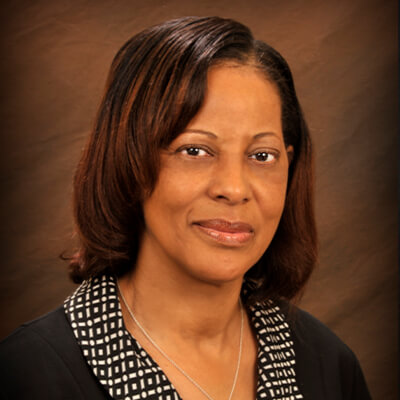by Vanessa Cox, MSW, LCSW, CMAT
Very few of us can ignore or deny the waves of social unrest sweeping throughout our communities, this country, and the world amid the pandemic that continues to permeate our existence. The impact of these two equally catastrophic circumstances can be the catalyst for “a perfect storm” to exacerbate mental health issues. Mental health issues are nondiscriminatory and not fundamentally based on race, gender, or ethnicity; yet, these can and do influence how people cope with life experiences. Two notable challenges or barriers to coping with mental health needs include stigmatization and a lack of resources. Both of which impede one’s willingness and ability to seek and obtain mental health treatment. The violence and discrimination that are prevalent in today’s news are inherently traumatic, particularly for the members of the black community who experience societal trauma at disproportionately higher rates. As a black woman who was born and raised in Mississippi, I came to understand the impact of racism in the 1960’s and 1970’s through my own experiences, as well as the observations of others’ encounters. Raised by my grandparents, I saw (what I now know was) my grandfather’s depression as a result of oppression and experienced this emotional plague with my grandparents and others in our community. The shame and frustration of segregation and demoralization was an agonizing norm (having to go in through the back door of the doctor and dentist offices). The agony of the loss of loved ones killed solely because of the color of their skin was an all too common occurrence. The story of Emmet Till was more terrorizing for us as children than anything that Friday the 13th’s Jason or Halloween’s Michael Myers could have ever conjured up in those horror films.
There were also times when I was confused about what it meant to be black. My maternal great grandfather’s race was “Mulatto” according to his birth certificate. It was years later that I learned what “Mulatto” meant. I can imagine the struggles he might have endured with his identity or self-concept, as well as, how his self-perception impacted his self-esteem. None of these things were talked about in our family. The adage was “children were made to be seen; not heard.” When I grew up, the topic of anything in the vein of racism preceded “politics and religion” in topics not to be discussed. Even positive occurrences required a solemn oath of secrecy such as my grandmother’s intricate role as the grand worthy matron of the OES (Order of the Eastern Star) along with others sneaking Dr. Martin Luther King in and out of our church to meet with local civil right workers. Our church parsonage was bombed sometime later. This week as I watched Mississippi’s state flag removed, I was moved to tears as memories of the past and hope for the future simultaneously collided within me. I do believe that a door leading to opportunities for healing and growth has been opened, and it is up to us as a society to ensure that it remains open and that we embrace these opportunities to unite.

As I often tell my patients, I do believe that the more we talk about anything the less power that it has over us. There is often great difficulty talking about experiences involving racism. Those experiences are often so deeply emotional and often eliciting fear, anger, shame, guilt, sadness, and confusion. Simply acknowledging these feelings at the beginning is a good place to start. Thoughtful dialogue can acknowledge differences of perspectives while inviting empathy and questions that lead to conversations that allow people to better understand the impact of experiences that have shaped their perspectives. Fear of saying the wrong thing is a huge barrier in beginning these discussions. Realistically, as we stand at this door of opportunities, the only wrong thing to say would be to say nothing at all.
Some encounters with discrimination, racism, and hate crimes result in racial trauma or raced-based stress with symptoms of anger, recurring thoughts about the event, and physical reactions such as headaches, chest pains, and insomnia. Also, hypervigilance and low self-esteem, these are all very similar to symptoms of PTSD according to Mental Health America. Despite these dilemmas, cultural barriers hinder many blacks from seeking help. These barriers include stigmatizing beliefs and fear of judgment by family and friends, the value of self-reliance and the perception of being viewed as weak, difficulty identifying or expressing concerns, misinformation about the therapy process, shame about having the experience happen, the fear of being misunderstood, and the ability to access mental health services. Many readily seek help for medical issues such as hypertension and diabetes but minimize the importance of self-care for emotional and mental health. Accessing mental health support is an important step in improving the quality of life, especially in the face of racism.
About Vanessa Cox, MSW, LCSW, CMAT:
Vanessa Cox is a Licensed Certified Social Worker and a Social Work Supervisor. She provides Outpatient therapy at Pine Grove Behavioral Health & Addiction Services. Cox earned her Bachelor of Social Work and her Master of Social Work degrees from The University of Southern Mississippi and she is certified in Eye Movement Desensitization and Reprocessing (EMDR) and as a Certified Multiple Addiction Therapist (CMAT). Cox also provides EMDR therapy to Pine Grove’s Specialty Treatment Program patients and has been a part of the Pine Grove team since October of 2005. She has also worked as the Clinical Director for Pine Grove’s Women Center and Next Step programs. Cox worked in the fields of addiction and mental health for sixteen years as House Manager, Counselor Associate, Counselor, and Clinical Director prior to joining the Pine Grove team. For more information on how to make an Outpatient appointment with Vanessa Cox, please call 1-888-574-HOPE (4673), and visit www.pinegrovetreatment.com.
About Pine Grove Behavioral Health & Addiction Services:
Pine Grove’s world renowned programs treat gender specific chemical addiction including a specialized track for co-occurring eating disorders and trauma. Additionally, Pine Grove offers an Intensive Outpatient substance abuse healing program for adults and a program specifically for those who are age 55 plus. Other Pine Grove specialty programs include a dedicated professional’s treatment curriculum and a comprehensive evaluation center. Pine Grove also features a program for patients with sexual addiction. Inpatient Services including an Adult Psychiatric Unit, along with a Child and Adolescent Psychiatric Unit, and Outpatient Services are other components. Pine Grove was established in 1984 and has provided nationally and internationally recognized health care for 36 years. For more information about Pine Grove, please visit www.pinegrovetreatment.com and call 1-888-574-HOPE (4673).

